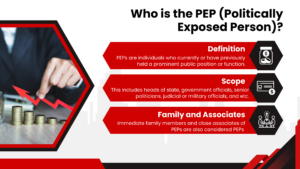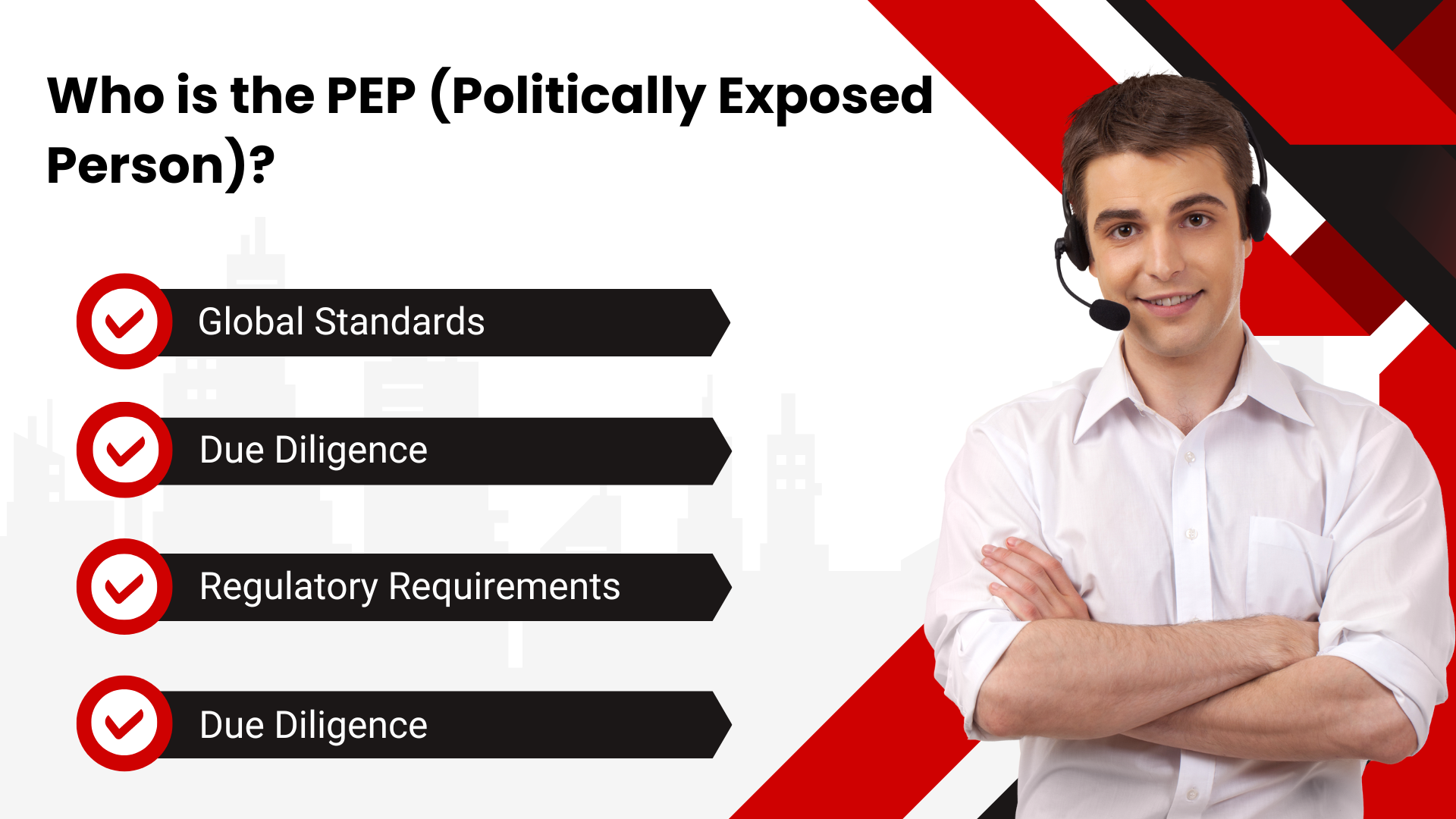Who is a Politically Exposed Person (PEP)? – PEP Definition & Risk in Singapore
A Politically Exposed Person (PEP) is a well-known classification in financial industry, and financial compliance frameworks globally, including Singapore. The PEP definition in Singapore follows international guidelines such as those from the FATF (Financial Action Task Force). A PEP refers to a customer who holds a prominent public office or similar functions. It does not matter whether the person is a domestic PEP, a foreign PEP, or even a family member or close associate of a PEP.
Examples of PEPs are members of the legislature, senior officials of a political party, senior military officers, a senior judicial officers, or senior civil servants. Senior public servants, government ministers, heads of government, or heads of states are also PEPs. The same case applies to senior executives of corporations owned by the state. A person associated with such people can also be referred to as a Politically Exposed Person (PEP). Therefore, family members of a politician are also PEP.
However, junior and middle-ranked officers are not among the group. So, let’s take a look at this topic in detail.
Why are PEPs Important in Singapore? – KYC, AML, and Corruption Risk
People in power often carry a relatively high PEP risk in Singapore due to their exposure to corruption and influence. That’s why PEP and AML (Anti-Money Laundering) procedures are vital. Once a Politically Exposed Person is under investigation, the financial institution linked to them may experience reputational damage. Financial firms are expected to implement PEP screening processes and follow a risk-based approach to PEPs.
No one wants to entrust their funds to someone involved in corruption. Bad publicity is not the only thing that transpires once such a thing happens. It could also mark the beginning of never-ending legal battles. They take up a lot of time, effort, and money. You don’t want to undergo such a draining experience, so you should be wary of a Politically Exposed Person (PEP).
How to Identify a Politically Exposed Person – PEP Screening & Due Diligence in Singapore
Turning away politically exposed persons entirely may not be suitable for the business. That’s probably why the Monetary Authority of Singapore (MAS) has some respective measures. It has given financial institutions the responsibility to apply customer due diligence. Therefore, a business or financial institution can avoid a bad experience with PEPs by taking the Know Your Client (KYC) checks seriously.
There are two types of KYC checks. The first one is basic, and as the name suggests, it is about verifying the identity of new or old investors, shareholders, and clients. On the other hand, there are enhanced KYC checks. It is about gathering as much information as possible about the activities of a particular individual or entity. Then, the organization goes ahead to understand it profoundly and determine the amount of risk. It is crucial for high-risk customers, including the PEPs. Therefore, if a company does the checks diligently, it will mitigate associated risks without locking the PEPs out.
The Difference Between Domestic and Foreign PEPs: Implications for Due Diligence in Singapore
In Singapore, the distinction between Domestic PEPs and Foreign PEPs is important in the compliance with the regulation and management of financial risk. A Domestic Politically Exposed Person is a person who is a prominent public figure in Singapore, i.e. government minister, senior civil servant, or a member of Parliament. With this in mind, (i.e. a Foreign PEP) holds a similar position in another country and is typically perceived to be rather more risky because of the lack of direct regulatory oversight and greater exposure to the international corruption risks.
From a compliance aspect, foreign PEPs usually call for an enhanced due diligence (EDD) under the guidelines of MAS and FATF. This entails stricter validation of their source of funds, exposer in politics, and reputational risk. Although Domestic PEPs might be less risky because of the robust governance in Singapore, both categories require screening and monitoring of PEPs. The financial institutions in Singapore are to use risk based approach when it comes to PEPs thus ensuring continuous reviews complying with the AML requirements.
Conclusion
Politically Exposed People are an integral part of the world we live in, no doubt. Equally important, not all of them are corrupt despite being in power. Therefore, it is possible to do business with them without jeopardizing your organization. All you have to do is identify them and then carry out enhanced KYC checks. MAS has put those rules are regulations for a reason, and you can’t afford to ignore them.






